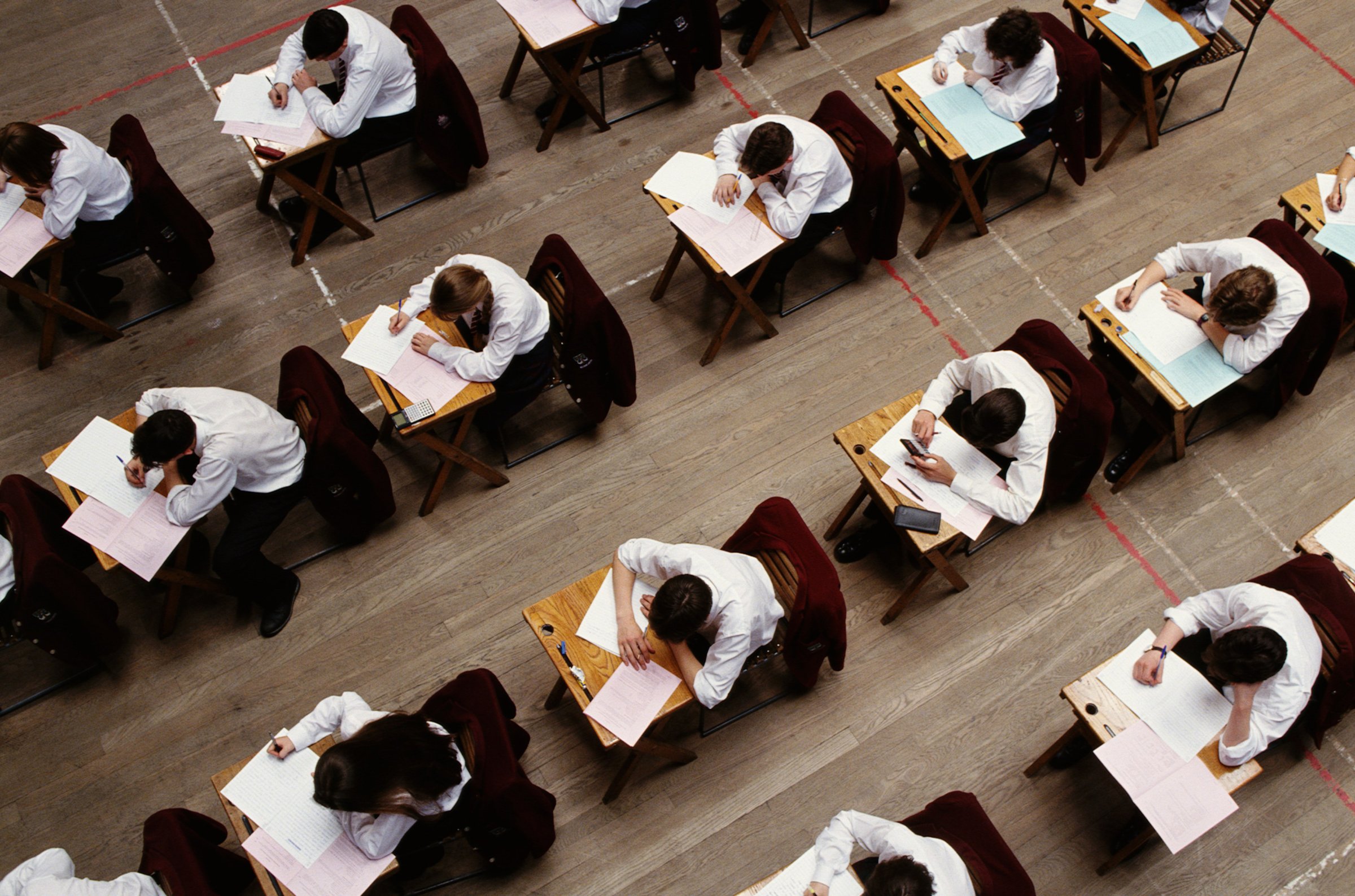
Is my high school, Lake Area New Tech, a prison or school? Students arrive ready for school every morning, but unfortunately must wait outside the building until security guards unlock the doors at 7:30 a.m. It could be raining, hailing, or sleeting, but they will NOT open the doors until then. Once the doors are unlocked, it takes the guards 15 to 20 minutes to search each student and check for uniform violations. That leaves us with just a few minutes to eat breakfast before class starts at 8 a.m. That’s not enough time for 600 students to make it through the cafeteria line. On a typical morning, we are treated like prisoners, which causes students to react in a variety of negative ways.
Some students break the rules in response to how they are treated. I know how they feel because I was once punished for an act of “rebellion.” At my school, female students are required to wear skirts and socks of a certain length. One day I arrived at school without the proper socks and was told by my principal that I had two options: I could either go to in-school suspension or get my parents to bring the right socks. This made me angry and I gave my principal an earful. But I didn’t want to end up in in-school suspension with more than 30 other students so I called my mother and asked her to bring the correct socks. It took her at least a half hour to bring them, meaning I lost that half hour of class. After going through that frustrating experience, I was upset for the nearly the whole day. I am the top ranking student in my class with a 4.5 grade point average, and also participate in sports and contribute a lot to my school. Why should a student in my position—or any student at all—be treated like a prisoner?
My school is not alone. The charter schools that have opened in New Orleans since Hurricane Katrina are beyond strict. The rigid discipline structures that have been placed inside these schools are not effective. In many schools students are expected to walk in straight lines, remain silent, and wear a full uniform at all times. These discipline structures focus too much on behavior rather than academic performance, which should be administrators’ number one priority if they want to help students excel. The only benefit we get from abiding by these rules is to look like young professionals. Yet what good will that do us if our test scores and academic performance are low? In order to become professionals we must succeed in academics, which is something we are unable to do if we’re being held in detention or suspended due to a uniform or behavior violation. By attending a school with fewer rules, I would excel even more since there would be fewer distractions about attire or behavior.
It’s quite challenging for most New Orleans students to adapt to the rigid discipline structures since they come from environments that are nothing like that. Many students here are exposed to drugs or violence or at least witness something of the kind. Although I have had no personal involvement in either, I often witness drug transactions on the streets. Some people think the violence and drugs make the rules even more necessary to make sure students don’t engage in such activities. Wrong! If you treat students like prisoners, they will react like prisoners.
Students also respond differently depending on who is making the rules. Most of the administrators working in the schools I have attended are white and not from Louisiana. This makes me think back to the beginning of the United States when the Native Americans were being “Americanized” by white Europeans. The white people made the Native Americans convert to their religion, stop speaking their native language, stop wearing their traditional clothing, and change their names to “American”and “Christian” ones. They even had to start wearing their hair like the white people wore theirs. I see a similar process happening in schools with all of these stringent rules, which leads me to the question: Are we being trained for the professional world or for the white world? Or does being a professional mean being part of the white world?
Students may feel as if teachers from the North don’t know much about Southerners’ backgrounds. Why should we have to abide by rules created by people who are not from the South and don’t have full insight about us? Some students feel like the teachers don’t know much about us apart from stereotypes. When the people who create the rules know so little about who we are and where we came from, what reason have we to trust them?
Kenyatta Collins, 16, is a junior at Lake Area High School. This essay is part of a collaboration between The Hechinger Report and high school students at Bard’s Early College in New Orleans.
More Must-Reads from TIME
- Inside Elon Musk’s War on Washington
- Meet the 2025 Women of the Year
- The Harsh Truth About Disability Inclusion
- Why Do More Young Adults Have Cancer?
- Colman Domingo Leads With Radical Love
- How to Get Better at Doing Things Alone
- Cecily Strong on Goober the Clown
- Column: The Rise of America’s Broligarchy
Contact us at letters@time.com